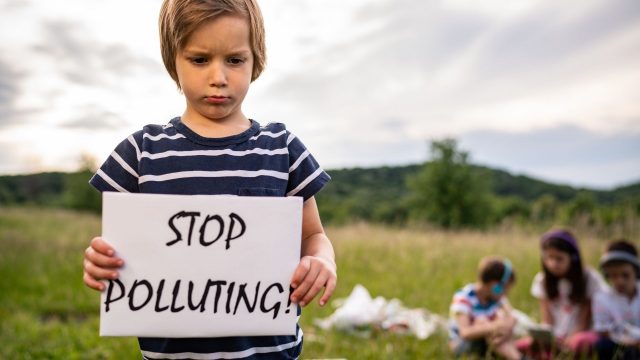16
May
Tell Congress that Environmental Laws without Compliance Are Worthless

(Beyond Pesticides, May 16, 2021) Despite the fact that many more people die from living and working in unhealthy environments than from homicides or traffic crashes, resources put into preventing those deaths have been lacking—even decreasing in recent years.
Tell Congress to double budgets for environmental law enforcement.
Toxic pesticide residues readily contaminate soils, water (solid and liquid), and the surrounding air at levels exceeding U.S. Environmental Protection Agency (EPA) set standards. Scientific literature demonstrates pesticides’ long history of adverse effects on the environment, including wildlife, biodiversity, and human health. Pesticides can present acute and long-term health impacts worldwide, especially to farmers, 44 percent of whom experience pesticide poisoning every year. Furthermore, a 2020 study attributes approximately 385 million cases of non-fatal unintentional poisonings and 11,000 deaths annually to pesticides.
The risks to human and environmental health must be met with strong environmental law enforcement. In the case of pesticides, this involves not only enforcement of label restrictions in the field, but also closer attention to ensuring that pesticides are not registered for uses in which risks outweigh benefits—as required by law. The commitment to stronger environmental law enforcement should begin with a doubling of the budget for these activities. President Biden’s 2023 budget proposal, which aims to create more than 1,900 new full-time positions, barely covers the 1,500 jobs the EPA eliminated during the first year and a half of the Trump administration. Instead, a doubling of the staff level will help EPA to reduce the growing divergence between workload and staff.
In addition to EPA, other environmental agencies are in dire need. More investigators at the U.S. Fish and Wildlife Service (FWS), Bureau of Land Management (BLM), Forest Service, and other agencies are needed to protect wildlife and endangered species at danger from poachers, chemical contamination, development, and climate change. The Fish and Wildlife Service has only about 250 special agents investigating wildlife crimes, while the BLM devotes just 70 people to criminal investigations.
Tell Congress to double budgets for environmental law enforcement.
Letter to U.S. Representative and Senators:
As you consider President Biden’s budget requests, I ask that you address the need for environmental law enforcement. Despite the fact that many more people die from living and working in unhealthy environments than from homicides or traffic crashes, resources put into preventing those deaths have been lacking—even decreasing in recent years.
Toxic pesticide residues readily contaminate soils, water, and the surrounding air at levels exceeding U.S. Environmental Protection Agency (EPA) set standards. Scientific literature demonstrates pesticides’ long history of adverse effects on the environment, including wildlife, biodiversity, and human health. Pesticides can present acute and long-term health impacts worldwide, especially to farmers, 44 percent of whom experience pesticide poisoning every year. Furthermore, a 2020 study attributes approximately 385 million cases of non-fatal unintentional poisonings and 11,000 deaths annually to pesticides.
The risks to human and environmental health must be met with strong environmental law enforcement. In the case of pesticides, this involves not only enforcement of label restrictions in the field, but also closer attention to ensuring that pesticides are not registered for uses in which risks outweigh benefits—as required by law. The commitment to stronger environmental law enforcement should begin with a doubling of the budget for these activities. President Biden’s 2023 budget proposal, which aims to create more than 1,900 new full-time positions, barely covers the 1,500 jobs the EPA eliminated during the first year and a half of the Trump administration. Instead, a doubling of the staff level will help EPA to reduce the growing divergence between work load and staff.
In addition to EPA, other environmental agencies are in dire need. More investigators at the U.S. Fish and Wildlife Service (FWS), Bureau of Land Management (BLM), Forest Service, and other agencies are needed to protect wildlife and endangered species at danger from poachers, chemical contamination, development, and climate change. The Fish and Wildlife Service has only about 250 special agents investigating wildlife crimes, while the BLM devotes just 70 people to criminal investigations.
Thank you for your attention to this urgent issue.










